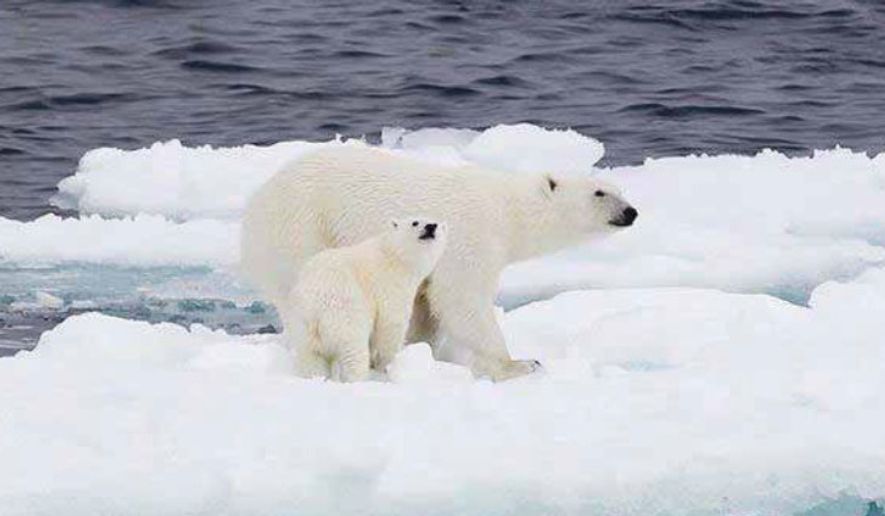OPINION:
In 1972, exactly half a century ago, the Soviet Union and the United States signed an agreement on cooperation in the field of environmental protection establishing a mutual obligation to develop it “on the basis of equality, reciprocity, and mutual benefit.”
In the subsequent years of the Cold War and after its end, this important agreement which covered a wide range of issues relevant to saving our planet, such as climate change, prevention of air and water pollution, interaction in the Arctic, was still overshadowed by the Russia-US negotiation process in the field of arms control and addressing our countries’ priority task of nuclear threat reduction.
In the current environment of global instability, when the geopolitical picture of the world is undergoing radical transformations, and climate change is recognized as one of the main challenges facing the mankind, it is especially important to look for common ground, starting from the work already done, and not try to build new sanction barriers for short-term political ends.
A record increase in energy prices caused by artificial restrictions threatens to surpass the effects of the 1973 energy crisis. To date, reports from the IPCC (Intergovernmental Panel on Climate Change) are warning of catastrophic consequences of a global temperature rise by 1.5 degrees Celsius, let alone 2 degrees. Every month gives us a glimpse into the future: unbearable heat in Europe, devastating wildfires in Russia, agriculture-threatening droughts in the USA, storms and rising ocean levels that jeopardize the very existence of small island States. Neither economic, nor cultural, nor military capabilities will save us from natural disasters, and it is important to understand this already now.
At the 26th session of the Conference of the Parties to the UN Framework Convention on Climate Change in Glasgow last November, each of the participants has realized the seriousness of the climate threat as never before. That meeting welcomed the ambitions; it prompted each country, company and human being to do more to cushion the fatal impact on our planet. The need for taking decisive actions seemed to weight the existing divergences up to the common understanding of the necessity to move towards carbon neutrality although with different pace for individual countries.
Unfortunately, the real life has drastically changed since Glasgow Conference. The uniting nature of the climate agenda gradually disappears and its previous focuses turn blurry. We have encountered a two-dimensional challenge – failure to meet national goals and drifting apart in the international realm. Thus, Germany and Great Britain re-open their coal power stations (although following the Glasgow Conference the Western countries were active in criticizing the developing States, in particular, India and China for being too slow in coal exit). Oddly enough, but in 2022, we shall not get closer to, but even farther from achieving the goals of the Paris Agreement.
Betting on the accelerated “green transition” no matter what on the part of many developed countries along with their expectations to impose their technologies on the rest of the world as well as introduction of unilateral restrictions led to the increasing energy shortages, astronomical gas prices and real threat of economic recession.
Russia, in its turn, follows a coherent policy by acting as a diligent participant of the international climate cooperation. Tremendous job has been done to announce an intention to reach carbon neutrality by 2060. To that end, we have been laying a solid foundation and providing unprecedented funding for basic and applied research, working on the most extensive system for monitoring emissions and removals of greenhouse gases, as well as carbon fluxes, and introducing a system of voluntary carbon pricing. After all, adapting the largest country in the world and reducing emissions of one of the largest economies without compromising the well-being of our population is a rather ambitious task. Further restrictive policies by the collective West can delay the decarbonization of Russia, but the consequences of that decision will affect the whole planet.
It should be noted that the views of Russia and the United States on environmental issues have been and still are similar in many ways, in particular regarding approaches to the development of nuclear power generation, the role of forests and oceans in reducing the concentration of atmospheric carbon, the Arctic, and the reduction of methane leaks. The Joint Statement with my counterpart John Kerry, US Special Presidential Envoy for Climate, signed last year, also included the implementation of joint climate projects and satellite monitoring of emissions. In fact, both in 1972 and in recent history, climate remained one of the few areas of non-politicized and fruitful cooperation.
Alas, by today, that emerging dialogue has faded away. Joe Biden’s administration refused to invite Russia to the Major Economies Forum on Energy and Climate, even though Russia is one of the major energy powers of the world with the largest forest cover and one of the major greenhouse gas emitters. Former consensus on the unifying nature of the environmental agenda is in the past, and environmental forums are drowning in political accusations that disrupt professional dialogue. However, this irrational approach only hurts our shared home - planet Earth. In many respects, the today’s crisis is due to the reluctance to hear each other.
Now, to keep the 1.5 degrees goal attainable, we need to radically revise approaches to international cooperation. Russia and the United States, as great powers and emitters, are bound to work together in order to save our planet.
• Ruslan Edelgeriev is the Advisor to the President of the Russian Federation on Climate Change.




Please read our comment policy before commenting.